Famous Personalities
Larry Page Quotes – Famous Co-founder of Google

As authors, we aim to draw inspiration from individuals who have reached significant milestones. Larry Page, one of the minds behind Google, stands out as a person who has profoundly influenced the tech world. His perspectives and innovations have fundamentally altered how we explore the digital realm.
Like a compass guiding us through uncharted territory, Page's quotes provide valuable wisdom and guidance. In this collection, we delve into his thoughts on innovation, failure, collaboration, and the future of technology.
Page's words remind us of the importance of continuous improvement and the power of data in decision-making. Furthermore, he emphasizes the need for a diverse and inclusive environment to foster creativity and leave a lasting legacy.
Let us embark on this journey of discovery, drawing inspiration from the words of Larry Page.
Key Takeaways
- Innovation is crucial for progress and success.
- Pursuing big ideas can drive meaningful progress.
- Failure should be embraced as a learning opportunity.
- Collaboration fosters innovation and success.
The Importance of Innovation
Innovation plays a crucial role in driving progress and success in today's rapidly evolving world. As technology continues to advance at an unprecedented rate, it becomes increasingly important to embrace innovation and harness its power to create a positive impact.
The future of technology holds endless possibilities, and it's through innovation that we can unlock these potentials.
Innovation isn't just about developing new products or services; it's about finding novel solutions to existing challenges and continuously improving upon them. By fostering a culture of innovation, organizations can stay ahead of the curve and adapt to ever-changing market needs. This proactive approach ensures that businesses remain relevant and competitive in an increasingly digital landscape.
Moreover, innovation has the ability to create a positive impact on society as a whole. From improving healthcare outcomes to addressing environmental concerns, innovative technologies have the potential to revolutionize various facets of our lives. By embracing innovation, we can find sustainable solutions to global challenges and pave the way for a brighter future.
Pursuing Big Ideas

Pursuing big ideas is essential for driving meaningful progress and pushing the boundaries of what's possible. Larry Page, the co-founder of Google, understands the importance of pursuing dreams and thinking outside the box. He believes that in order to make a significant impact on the world, we must dare to dream big and have the courage to pursue those dreams relentlessly.
Page encourages individuals to embrace curiosity and question the status quo. He believes that by challenging conventional thinking, we open ourselves up to new possibilities and opportunities. Page's own experiences with Google have shown that by pursuing big ideas, we can create transformative technologies and improve the lives of billions of people.
However, Page also emphasizes the importance of execution. It's not enough to simply have big ideas; we must also have the drive and determination to turn those ideas into reality. Page encourages individuals to take risks, learn from failures, and iterate on their ideas until they succeed.
Embracing Failure as a Learning Opportunity
When faced with failure, embracing it as a learning opportunity allows us to grow and improve. Larry Page, the famous co-founder of Google, emphasizes the importance of learning from failure and having a growth mindset. Failure is not something to be feared or avoided, but rather a valuable experience that provides valuable lessons. By approaching failure with a growth mindset, we can view setbacks as stepping stones towards success.
To illustrate the significance of learning from failure, let's consider the following table:
| Failure | Lessons Learned |
|---|---|
| Failed to meet project deadline | Importance of time management and proper planning |
| Launching a product that did not meet expectations | The need for market research and understanding customer needs |
| Making a wrong business decision | The value of thorough analysis and informed decision-making |
| Receiving negative feedback from customers | The opportunity to improve products or services based on feedback |
The Power of Collaboration

Collaboration plays a vital role in not only learning from failure but also in fostering innovation and achieving success. The benefits of teamwork are undeniable, as it allows individuals to bring together their diverse skills, knowledge, and perspectives to tackle complex problems. By working together, team members can leverage their collective expertise to generate new ideas and find creative solutions.
Effective communication is a key component of successful collaboration. It enables team members to share information, coordinate efforts, and align their objectives. Open and transparent communication fosters trust and enhances teamwork, as it ensures that everyone is on the same page and working towards a common goal.
Moreover, collaboration promotes synergy, where the whole is greater than the sum of its parts. When individuals collaborate, they can combine their strengths and compensate for each other's weaknesses. This synergy leads to increased productivity and efficiency, as tasks are divided among team members based on their skills and expertise.
The Future of Technology
The future of technology holds limitless possibilities for innovation and advancement. As we continue to make strides in various fields, it's important to consider the ethical concerns and the impact on the job market.
With the rapid development of artificial intelligence (AI) and automation, there are concerns about the potential loss of jobs. While technology has historically displaced certain roles, it has also created new opportunities. As Larry Page once said, 'We have a job crisis, and we also have a problem where the labor force participation rate has been falling.' It's crucial for us to adapt and reskill ourselves to stay relevant in the evolving job market.
Furthermore, the ethical implications of technology can't be ignored. As technology becomes more integrated into our daily lives, issues such as privacy, cybersecurity, and data protection come to the forefront. Larry Page emphasized the importance of addressing these concerns, stating, 'We have a mantra: don't be evil, which is to do the best things we know how for our users, for our customers, for everyone.'
Creating a Positive Impact
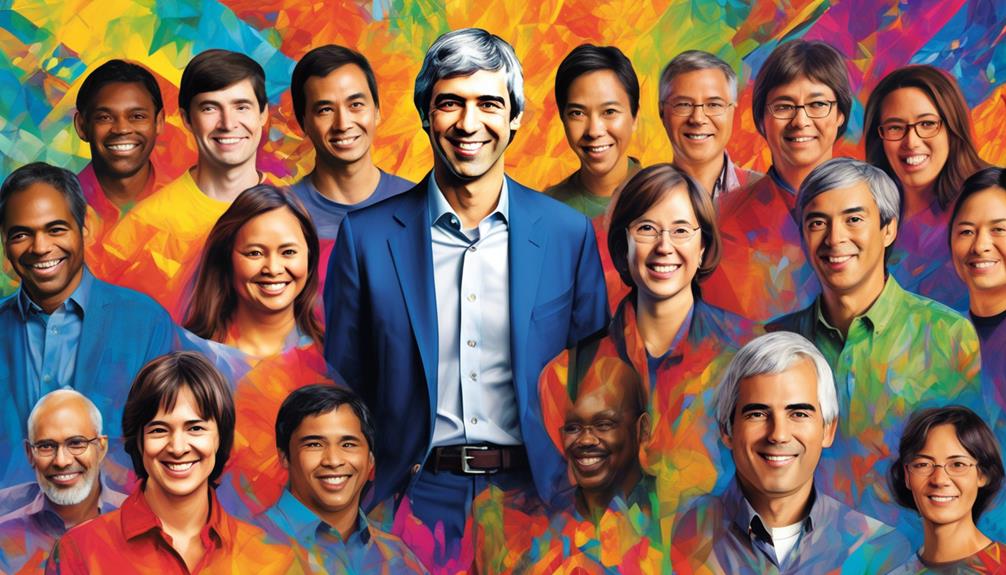
Creating a positive impact is essential in shaping a future where technology benefits society as a whole. It isn't enough for technology to simply exist; it must be used in ways that create social change and make a difference. Larry Page, the famous co-founder of Google, understood the importance of creating a positive impact through technology.
Here are two ways in which we can create a positive impact:
- Empowering marginalized communities:
- By providing access to technology and digital resources, we can bridge the digital divide and empower marginalized communities to thrive in the digital age.
- Through initiatives like digital literacy programs and affordable internet access, we can ensure that everyone has equal opportunities to harness the power of technology.
- Addressing global challenges:
- Technology can be harnessed to address pressing global challenges such as climate change, poverty, and healthcare disparities.
- By leveraging innovative solutions like renewable energy technologies, smart cities, and telemedicine, we can create a positive impact and work towards a more sustainable and equitable future.
The Role of Curiosity in Success

Curiosity plays a crucial role in achieving success, driving individuals to explore new ideas and uncover innovative solutions. It's through curiosity-driven learning that we acquire new knowledge and skills, expanding our understanding and capabilities. When we approach challenges with a curious mindset, we're more likely to find creative and effective solutions.
Curiosity and problem-solving go hand in hand. When faced with a problem, a curious person seeks to understand the root causes and explore different perspectives. This exploration allows for the discovery of unique approaches and novel solutions. By questioning assumptions and exploring alternative possibilities, curiosity enables us to think outside the box and break through conventional barriers.
In the pursuit of success, curiosity also fosters a growth mindset. It encourages us to continuously seek new information, embrace learning opportunities, and adapt to changing circumstances. Curiosity fuels our desire for improvement and pushes us to overcome obstacles, driving us towards greater achievements.
Building a Culture of Creativity

To establish an environment that fosters innovation and encourages out-of-the-box thinking, we must cultivate a mindset that embraces creativity and values unconventional ideas. Building a culture of creativity requires deliberate actions and strategies that promote an atmosphere where individuals feel empowered to take risks and think differently.
Here are two key ways to foster creativity and encourage innovation:
- Encourage collaboration:
- Foster an open and inclusive environment where diverse perspectives are welcomed.
- Promote cross-functional collaboration to spark new ideas and foster interdisciplinary thinking.
- Embrace failure as a learning opportunity:
- Create a safe space where mistakes are seen as valuable lessons rather than failures.
- Encourage experimentation and provide support for employees to take calculated risks.
The Value of Taking Risks

When it comes to achieving success, Larry Page emphasizes the importance of embracing uncertainty and taking risks. He believes that by stepping outside of our comfort zones and embracing the unknown, we open ourselves up to new opportunities and possibilities.
Page also highlights the value of calculated risks, as they have the potential to breed innovation and drive us towards groundbreaking achievements.
Embracing Uncertainty for Success
Embracing uncertainty and taking risks is essential for achieving success. Larry Page, co-founder of Google, emphasizes the value of stepping into the unknown. By embracing uncertainty, we open ourselves up to new possibilities and opportunities that may not have been apparent before. It allows us to navigate challenges with a sense of adventure and curiosity, pushing us to think outside the box and find innovative solutions.
Taking risks also helps us grow and develop as individuals. It forces us to confront our fears and push past our comfort zones. It's through embracing uncertainty and taking risks that we can truly reach our full potential and achieve the success we desire.
Calculated Risks Breed Innovation
Taking calculated risks is a key driver of innovation, as it encourages individuals and organizations to push boundaries and explore new possibilities. Larry Page, the famous co-founder of Google, understands the value of taking calculated risks in order to achieve success. In fact, he once said, "If you're not doing some things that are crazy, then you're doing the wrong things." This mindset reflects the belief that calculated risks are necessary for innovation to thrive. By taking risks, we challenge the status quo, challenge ourselves, and open up new opportunities for growth and advancement. In the world of technology, where innovation is constant, calculated risks are often the catalysts for groundbreaking inventions and groundbreaking success. Here is a table highlighting the correlation between risks and innovation:
| Risks | Innovation |
|---|---|
| Encourages thinking outside the box | Sparks creativity |
| Pushes boundaries | Drives progress |
| Creates opportunities for growth | Fosters breakthroughs |
Emphasizing User Experience

To prioritize the satisfaction of users, Larry Page emphasizes the importance of enhancing the overall user experience. This involves implementing user-centered design principles and continuously improving user satisfaction.
Here are two key reasons why emphasizing user experience is crucial:
- Increased customer loyalty: By focusing on the needs and preferences of users, companies can create products and services that align with their expectations. When users have a positive experience, they're more likely to become loyal customers, leading to increased customer retention and repeat business.
- Positive brand perception: User experience plays a significant role in shaping how users perceive a brand. When users have a seamless and enjoyable experience, they're more likely to view the brand in a positive light. This can result in increased brand loyalty, positive word-of-mouth recommendations, and a stronger brand reputation in the market.
The Need for Continuous Improvement

As we delve into the subtopic of 'The Need for Continuous Improvement', it's important to understand Larry Page's perspective on this matter.
Larry Page is a firm believer in the unending pursuit of excellence and the need to embrace constant refinement. He emphasizes the importance of always striving for improvement and never settling for the status quo.
Larry Page's quotes highlight the mindset of continuous improvement that he believes is necessary for success in any endeavor.
Unending Pursuit of Excellence
How can we continually improve and strive for excellence in our pursuits? Continuous improvement is key to fostering innovation and achieving excellence. Here are two ways we can embrace this unending pursuit:
- Embrace a Growth Mindset: Cultivate a mindset that sees challenges as opportunities for growth and learning. Embrace failure as a stepping stone to success and view setbacks as valuable lessons. By adopting a growth mindset, we can constantly evolve and improve our skills and abilities.
- Seek Feedback and Act on It: Actively seek feedback from others and be open to constructive criticism. Use feedback as a tool for self-reflection and improvement. Act on the feedback received by making necessary adjustments and implementing changes that will lead to better outcomes.
Embracing Constant Refinement
Embracing constant refinement is essential for achieving continuous improvement and ensuring ongoing success in our pursuits.
Larry Page, the famous co-founder of Google, understood the importance of constantly seeking ways to improve and innovate. He once said, 'If you're not doing some things that are crazy, then you're doing the wrong things.' This mindset reflects the need to push boundaries and challenge the status quo.
In order to achieve constant improvement, we must embrace a culture of continuous learning. This means constantly seeking new knowledge, staying updated with the latest trends and technologies, and being open to feedback and criticism.
The Role of Data in Decision Making
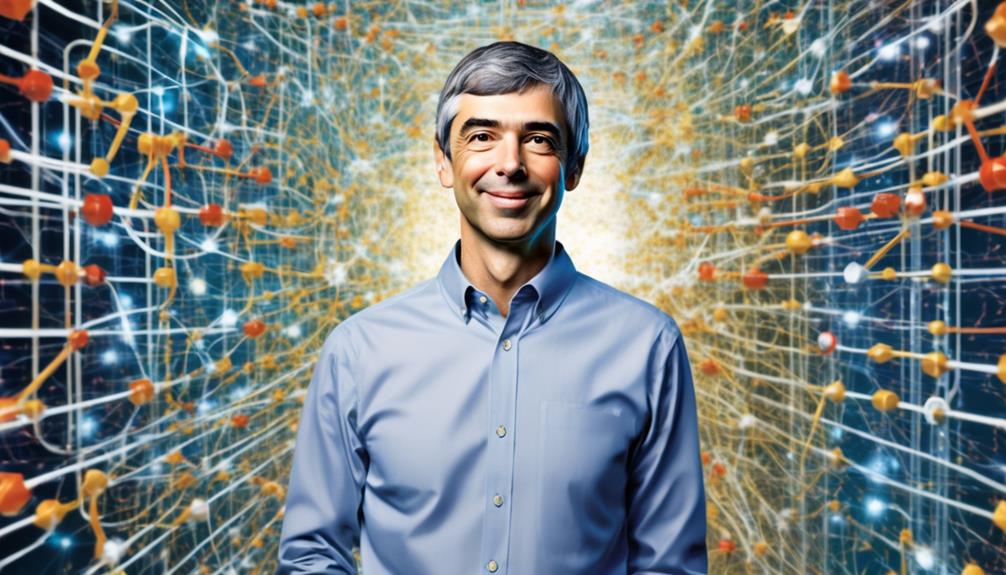
Data plays a crucial role in informing and guiding decision-making processes. It provides valuable insights and helps us make more informed choices. Here are two reasons why data is essential in decision making:
- Accuracy and Objectivity: Data provides us with accurate and objective information that's based on facts and evidence. It removes biases and personal opinions from the decision-making process, allowing us to make decisions based on reliable information. This ensures that decisions are grounded in reality and increases the likelihood of successful outcomes.
- Risk Mitigation: Data analysis enables us to identify trends, patterns, and potential risks. By analyzing historical data and current trends, we can anticipate potential challenges and make decisions that mitigate risks. This allows us to make more informed choices and reduces the chances of making costly mistakes.
Fostering a Diverse and Inclusive Environment

To create an environment that fosters diversity and inclusivity, we must acknowledge the valuable insights and perspectives that individuals from different backgrounds bring to the decision-making process. By promoting diversity, we open ourselves up to a wide range of thoughts, experiences, and expertise that can enhance our problem-solving capabilities and drive innovation. Larry Page has emphasized the importance of fostering inclusivity at Google, recognizing that a diverse workforce leads to better outcomes.
In order to foster inclusivity and promote diversity, Google has implemented various initiatives and programs. One example is the Employee Resource Groups (ERGs) that provide a platform for employees to connect, share experiences, and support one another. These ERGs focus on different dimensions of diversity, such as gender, ethnicity, and sexual orientation, creating a supportive community within the company.
Another initiative is the unconscious bias training that Google offers to its employees. This training helps individuals recognize and address their own biases, enabling them to make fair and unbiased decisions. Additionally, Google actively seeks to increase diversity in its hiring practices by implementing strategies to attract candidates from underrepresented groups.
By fostering inclusivity and promoting diversity, Google not only creates a more welcoming and supportive work environment, but also ensures that its products and services are accessible and relevant to a global audience. Through these efforts, Google aims to create a culture of inclusivity where everyone feels valued and empowered to contribute their unique perspectives and talents.
| Initiatives and Programs | Description |
|---|---|
| Employee Resource Groups (ERGs) | Provide a platform for employees to connect, share experiences, and support one another. Focus on different dimensions of diversity. |
| Unconscious Bias Training | Helps individuals recognize and address their own biases, enabling them to make fair and unbiased decisions. |
| Diverse Hiring Strategies | Actively seeks to increase diversity in its hiring practices by implementing strategies to attract candidates from underrepresented groups. |
| Accessibility and Relevance | Ensures that its products and services are accessible and relevant to a global audience. Creates a culture of inclusivity where everyone feels valued and empowered. |
Leaving a Lasting Legacy

Google's approach to fostering inclusivity and promoting diversity has also been driven by the goal of leaving a lasting legacy. We believe that creating a diverse and inclusive environment not only benefits our employees and users but also contributes to the overall progress of society.
- Leaving a Lasting Legacy:
By prioritizing diversity and inclusivity, we aim to set an example for other organizations and inspire them to follow suit. We hope to leave a lasting impact by challenging conventional norms and promoting equality. Our commitment to diversity extends beyond our own walls. We actively support initiatives and organizations that promote underrepresented groups in technology, education, and entrepreneurship. By doing so, we hope to create a ripple effect that leads to greater opportunities for everyone.
- Personal Growth and Development:
We believe that diversity and inclusion are essential for personal growth and development. By embracing different perspectives and experiences, we challenge our own biases and expand our horizons. This not only benefits individuals but also fuels innovation and drives our collective success. Through mentorship programs, employee resource groups, and inclusive policies, we strive to create an environment where everyone can thrive and reach their full potential. We believe that by investing in our employees' growth and development, we're building a strong foundation for a lasting legacy.
Frequently Asked Questions
How Did Larry Page Come up With the Idea for Google?
We came up with the idea for Google through Larry Page's journey to revolutionizing internet search. He recognized the need for a more efficient and accurate search engine, one that could organize and prioritize information effectively.
What Are Some Examples of Big Ideas That Larry Page Pursued?
When it comes to big ideas, Larry Page pursued numerous groundbreaking ventures. From self-driving cars to renewable energy, Page's ambition knew no bounds. He believed in pushing the boundaries of technology and exploring new frontiers.
Some notable examples of his pursuits include Google X, which focuses on moonshot projects, and Calico, a biotech company aimed at combating aging and age-related diseases. These initiatives exemplify Page's visionary approach to innovation and his desire to make a lasting impact on the world.
Can You Share a Specific Failure That Larry Page Experienced and How He Learned From It?
Sure!
When it comes to failure, we can all learn valuable lessons from Larry Page's experiences.
One specific failure he encountered taught him the importance of focusing on the user experience.
This setback led Page to realize that a user-centric approach is crucial for success in the tech industry.
Which Collaborations Does Larry Page Credit as Being the Most Impactful in His Career?
Collaborative partnerships have played a significant role in shaping Larry Page's career. These influential collaborations have allowed him to achieve great success and make a lasting impact in the tech industry.
Through these partnerships, Page has been able to combine his innovative ideas with the expertise and resources of others, resulting in groundbreaking advancements.
How Does Larry Page Envision the Future of Technology and Its Impact on Society?
In envisioning the future of technology and its impact on society, we see an exciting and transformative landscape ahead. The potential of future technology to shape our lives is immense, from advancements in artificial intelligence and robotics to the development of sustainable energy solutions.
As society adapts to these changes, it's crucial that we navigate the ethical and social implications with care. By harnessing the power of technology responsibly, we can create a future that benefits all of humanity.
What Inspirational Insights Can We Learn from Famous Tech Company Co-founders?
The wisdom distilled in David Packard quotes, Hewlett Packard cofounder, serves as a beacon for aspiring entrepreneurs. From his insights, we learn the value of humility, perseverance, and innovation. Packard believed in the power of teamwork and that one’s work should have a purpose beyond profit—a lesson that continues to motivate and shape the ethos of the tech industry today.
Conclusion
In conclusion, Larry Page's quotes highlight the importance of innovation, pursuing big ideas, and embracing failure as a learning opportunity.
While some may argue that failure should be avoided at all costs, Page's perspective challenges this notion and encourages us to see failure as a stepping stone towards success.
By fostering a diverse and inclusive environment, embracing collaboration, and continuously improving, we can shape the future of technology and leave a lasting legacy.
Joy, as our Editor in Chief, ensures the highest standard of content. Her talent in writing is complemented by her attention to detail and passion for literature and culture. Joy’s expertise and love for the English language shine through in her editorial work, making each piece a testament to quality and clarity.
Philosophers Quotations
Why Do Philosophers Ponder Ultimate Reality?

Have you ever wondered why philosophers dive into the ocean of ultimate reality? It’s like a never-ending wave, constantly shifting and evolving, beckoning us to explore its depths.
We, as seekers of innovation, are captivated by the mysteries that lie beyond our everyday perceptions. Philosophers, like daring sailors, set sail on the vast sea of existence, driven by a burning desire to uncover the secrets of the universe.
We question the very fabric of reality, daring to challenge the boundaries of conventional wisdom. Through rigorous debate and contemplation, we seek to unravel the metaphysical truths that shape our understanding of existence.
Join us on this intellectual quest as we delve into the realm of ultimate truth, reflecting upon the nature of being itself.
Key Takeaways
- Philosophers engage in the age-old debate of nature versus nurture to explore the ultimate reality.
- Metaphysical inquiry allows philosophers to delve into the depths of existence and unravel the mysteries of consciousness and the universe.
- Philosophers seek to unveil the secrets of the universe beyond empirical observations and scientific explanations through metaphysical exploration.
- Philosophy plays a crucial role in understanding ultimate reality by providing frameworks for inquiry, challenging conventional wisdom, and expanding human knowledge.

The Nature of Ultimate Reality
The nature of ultimate reality remains a central inquiry for philosophers. As we delve into this topic, we’re confronted with the age-old debate of nature versus nurture and its implications on the meaning of life. Are we shaped primarily by our genetic makeup or by our environment? This question has puzzled philosophers for centuries, as they strive to unravel the complexities of human existence.
On one hand, the nature argument suggests that our ultimate reality is predetermined by our genetic inheritance. It posits that our traits, abilities, and even our destiny are largely determined by our biological makeup. This perspective emphasizes the role of genetics in shaping who we’re and what we become.
On the other hand, the nurture argument contends that our ultimate reality is molded by our environment and experiences. It suggests that our upbringing, social interactions, and cultural influences play a significant role in shaping our identities and shaping the meaning we find in life.
However, it’s important to recognize that the nature versus nurture debate isn’t a binary choice. Rather, it’s a complex interplay between both factors that contributes to our ultimate reality. Our genetics may provide the foundation, but our environment and experiences shape and mold that foundation, giving it meaning and purpose.
Ultimately, the nature of ultimate reality is a multifaceted concept that encompasses both our genetic predispositions and the influences of our environment. It’s the intersection of nature and nurture that defines our existence and gives rise to the meaning we seek in life. By understanding this dynamic interplay, philosophers continue to explore the depths of our ultimate reality, offering innovative perspectives and insights into the mysteries of human existence.
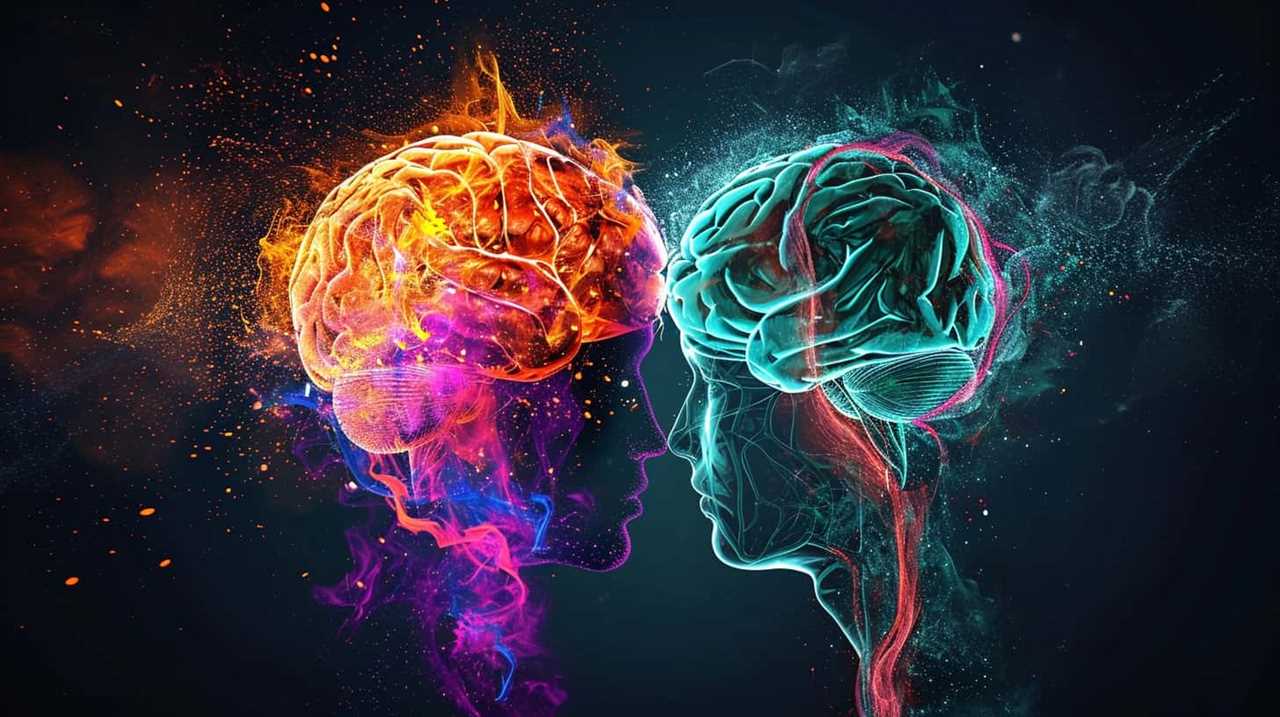
Exploring the Depths of Existence
How deeply do we delve into the mysteries of existence when philosophers ponder ultimate reality? Exploring the depths of existence is a fundamental aspect of metaphysical inquiry. It’s our innate curiosity that compels us to unravel the enigmatic nature of consciousness and the universe itself. As philosophers, we embark on a journey of exploration, seeking profound insights and pushing the boundaries of human understanding.
In this quest for knowledge, we engage in metaphysical inquiry, which involves questioning the very fabric of reality. We examine the nature of consciousness, contemplating its origins and purpose. We ponder the existence of alternate dimensions and parallel universes, contemplating their influence on our own reality. We reflect upon the interconnectedness of all things, searching for the underlying unity that binds the universe together. And we contemplate the meaning of our existence, pondering the purpose behind our being.
As we venture into the depths of existence, we encounter a myriad of philosophical puzzles and paradoxes. We grapple with the nature of time, questioning its linearity and exploring the possibility of multiple temporal realities. We ponder the concept of free will, contemplating the interplay between determinism and human agency. We wrestle with the problem of evil, seeking to reconcile the existence of suffering with the notion of a benevolent creator. And we explore the limits of human knowledge, questioning the extent to which we can truly comprehend the universe.
Embarking on this intellectual odyssey, philosophers push the boundaries of human thought, striving to unlock the secrets of existence. As we explore the depths of consciousness and engage in metaphysical inquiry, we pave the way for innovation and progress. Through our philosophical endeavors, we challenge established beliefs, spark new ideas, and inspire others to embark on their own journey of exploration.
It’s through this collective pursuit of ultimate reality that we expand the frontiers of human knowledge, forever shaping our understanding of the world we inhabit.
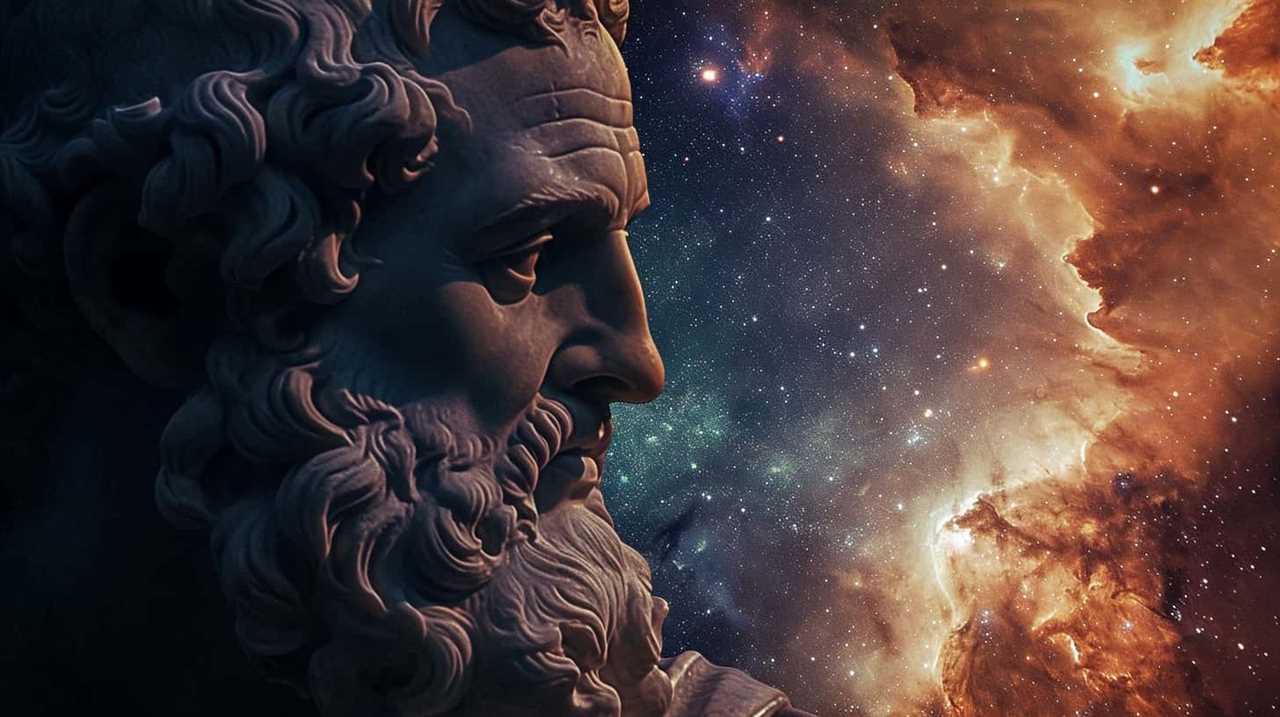
Unveiling the Mysteries of the Universe
As philosophers, we delve into the mysteries of the universe, seeking to unveil its secrets. Our pursuit of knowledge goes beyond empirical observations and scientific explanations. We embark on a metaphysical exploration, aiming to uncover the cosmic revelations that lie beyond our grasp.
The mysteries of the universe have captivated humanity since the dawn of time. We’re driven by an innate curiosity to understand the fundamental nature of reality and our place within it. Through rigorous contemplation and critical thinking, we strive to unlock the enigmas that surround us.
In our quest for cosmic revelations, we turn to philosophical frameworks that transcend the limitations of empirical evidence. We explore concepts such as the nature of time, the origins of the universe, and the existence of consciousness. By engaging in deep reflection and logical analysis, we seek to unravel the profound mysteries that elude scientific explanation.
Metaphysical exploration allows us to push the boundaries of our understanding and challenge conventional wisdom. It encourages us to question the very fabric of reality and consider alternative possibilities. Through this intellectual journey, we not only gain insights into the nature of the universe but also expand the frontiers of human knowledge.

Questioning the Fundamental Nature of Reality
In our pursuit of cosmic revelations, we delve into the very essence of reality, questioning its fundamental nature. As philosophers, we’re driven by a deep curiosity to explore metaphysical concepts and unravel the mysteries of existence. Here, we embark on a journey of intellectual exploration, daring to ask the profound questions that challenge our understanding of reality.
Let us ponder upon the following:
- What is the nature of reality? Is it objective, existing independently of our perceptions, or is it subjective, shaped by our consciousness?
- Are there multiple realities? Could there be parallel universes or alternate dimensions that exist alongside our own?
- Is reality deterministic or probabilistic? Are events predestined, or do we live in a world governed by chance and uncertainty?
- How does our perception shape reality? Can the limitations of our senses and cognitive faculties hinder us from perceiving the true nature of reality?
These questions push the boundaries of our understanding, challenging us to think beyond conventional wisdom. By questioning reality’s essence, we strive to expand our knowledge and foster innovation in our quest for the ultimate truth.
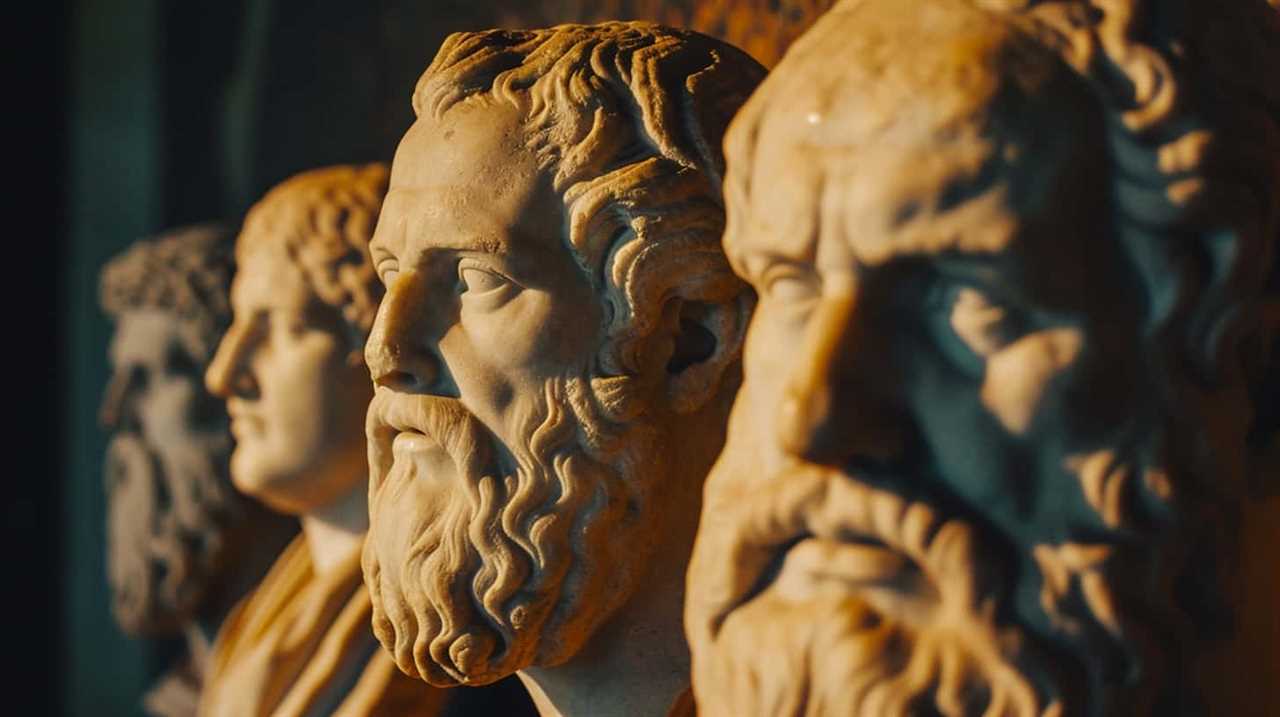
The Pursuit of Metaphysical Truth
As philosophers, we’re driven to explore the pursuit of metaphysical truth because it challenges us to consider the existence beyond physicality. We recognize the limitations of empirical knowledge and understand that there are aspects of reality that can’t be explained solely through scientific observation and measurement.
Existence Beyond Physicality
Philosophers explore the possibility of a reality that transcends the physical realm, delving into the pursuit of metaphysical truth. This exploration of existence beyond physicality takes us beyond the boundaries of materialism and opens up a world of spiritual dimensions.
Here are some reasons why philosophers are drawn to this topic:
- The search for meaning: Philosophers seek to understand the ultimate purpose and significance of our existence, often exploring metaphysical concepts to find answers.
- Challenging assumptions: By questioning the limitations of empirical knowledge, philosophers challenge the status quo and push the boundaries of human understanding.
- Exploring consciousness: The study of metaphysics allows philosophers to delve into the nature of consciousness, exploring the mind-body problem and the possibility of non-physical aspects of our being.
- Seeking transcendence: Philosophers are intrigued by the idea of surpassing the limitations of the physical world, searching for a reality that goes beyond what can be perceived through our senses.
As we delve into the pursuit of metaphysical truth, it becomes clear that our quest for understanding must also confront the limitations of empirical knowledge.
Limitations of Empirical Knowledge
While exploring the pursuit of metaphysical truth, we encounter the limitations of empirical knowledge. Empirical knowledge is based on observation and experimentation, rooted in the physical world. It’s limited to what can be perceived through our senses, leaving us unable to access or understand the metaphysical realms that philosophers seek to explore.
These limitations pose a challenge to our understanding of ultimate reality, as they confine us to the realm of the tangible and measurable. The quest to unravel the mysteries of existence beyond physicality requires us to transcend the boundaries of empirical knowledge and delve into the unknown. It demands a willingness to embrace uncertainty and explore alternative ways of knowing, such as intuition, introspection, and contemplation.
Seeking Deeper Understanding
In our quest for a deeper understanding of reality, we delve into the exploration of metaphysical truth. This pursuit requires us to engage in deeper introspection and philosophical contemplation, as we seek to uncover the fundamental nature of existence. Here are some reasons why philosophers undertake this endeavor:
- Uncovering the nature of reality: Philosophers aim to go beyond surface-level observations and uncover the underlying principles that govern the world we inhabit.
- Challenging assumptions: By questioning commonly held beliefs and assumptions, philosophers push the boundaries of knowledge and encourage innovative ways of thinking.
- Seeking meaning and purpose: The pursuit of metaphysical truth allows us to confront existential questions and explore the meaning and purpose of our existence.
- Expanding our understanding: By engaging in philosophical contemplation, we expand our intellectual horizons and gain new insights into the nature of reality.
Through this process of seeking deeper understanding, philosophers strive to unlock the mysteries of existence and contribute to our collective knowledge and innovation.

Debating the Nature of Existence
When contemplating the nature of existence, philosophers have grappled with two fundamental questions.
Firstly, what’s the fundamental nature of existence itself? Is it a concrete reality or an abstract concept?
Secondly, different philosophical perspectives have emerged, each offering unique insights into the nature of existence. From idealism to materialism, these perspectives provide a rich tapestry of thought that invites us to question and explore the very fabric of reality itself.
Existence’s Fundamental Nature
As philosophers, we continually grapple with the question of existence’s fundamental nature, seeking to debate and unravel the mysteries surrounding the very essence of what it means to exist. Understanding existence goes beyond mere observation; it requires a metaphysical exploration that delves into the depths of reality itself. Here are some key points to consider:
- The nature of existence isn’t as straightforward as it may seem. It raises questions about the origin, purpose, and meaning of our existence.
- Existence may be an inherent quality of reality, or it could be a construct of our perception and consciousness.
- Some argue that existence is a product of physical matter and energy, while others propose that it’s a result of a transcendent, immaterial essence.
- Exploring the fundamental nature of existence leads us to contemplate the boundaries of reality and opens up new possibilities for understanding our place in the universe.
In our quest for knowledge and innovation, we strive to unravel the mysteries that surround existence and push the boundaries of human understanding.
Philosophical Perspectives on Existence
Philosophers engage in lively debates about the nature of existence, exploring various philosophical perspectives to shed light on the ultimate reality. Metaphysical inquiry and philosophical contemplation are at the heart of these discussions.
One of the key philosophical perspectives on existence is idealism, which posits that reality is fundamentally mental or conceptual in nature. Idealists argue that the physical world is dependent on the mind for its existence.
On the other hand, materialism asserts that reality is solely composed of matter and that everything, including consciousness, can be explained in terms of physical processes.
Another perspective is dualism, which maintains that reality is composed of both physical and non-physical substances, such as mind and body.
These philosophical perspectives on existence offer different interpretations of the nature of reality, leading to ongoing debates and thought-provoking discussions among philosophers.

Seeking Answers About the Ultimate Nature of Reality
We embark on a journey of seeking answers about the ultimate nature of reality. As we delve into the depths of our existence, we encounter profound questions that challenge our understanding of the world.
Exploring consciousness and metaphysical realities, we strive to unravel the mysteries that lie beyond our immediate perception.
To shed light on this complex topic, let’s consider the following:
- The Illusion of Reality: We question whether our perception of reality is an accurate representation of the true nature of existence. Are we merely experiencing a filtered version of reality, limited by our senses and subjective interpretations?
- The Nature of Consciousness: We ponder the origin and essence of consciousness. Is it a product of our physical brain, or does it extend beyond the boundaries of our physical bodies? Could consciousness be a fundamental aspect of the universe itself?
- The Multiverse Hypothesis: We contemplate the possibility of multiple universes, each with its own set of physical laws and realities. Could our reality be just one among an infinite number of parallel worlds?
- The Role of Perception: We examine how our perceptions shape our understanding of reality. Are we objective observers, or do our preconceived notions and biases influence the way we interpret the world around us?
In our quest for answers, we challenge conventional wisdom and push the boundaries of human knowledge. By embracing innovation and exploring uncharted territories, we uncover new insights that reshape our understanding of the ultimate nature of reality.

Delving Into the Realm of Ultimate Truth
Our exploration of the ultimate nature of reality leads us to delve deeper into the realm of ultimate truth. As we venture into this profound territory, we encounter epistemological challenges and ponder the role of consciousness in uncovering the truth about existence.
To better understand the concept of ultimate truth, let us examine the following table:
| Epistemological Challenges | The Role of Consciousness |
|---|---|
| How can we know what is true? | Does consciousness shape our perception of truth? |
| Are there limits to human understanding? | Can consciousness transcend the limitations of the human mind? |
| How do we differentiate between subjective and objective truth? | Does consciousness possess inherent knowledge of ultimate truth? |
| How can we reconcile different perspectives on truth? | Can consciousness guide us towards a shared understanding of ultimate truth? |
The epistemological challenges highlighted in the table remind us of the complexity involved in unraveling the nature of reality. Our understanding of truth is intricately intertwined with our consciousness, raising questions about the reliability and limitations of our perceptions.
As we reflect on the role of consciousness in our pursuit of ultimate truth, we begin to grasp the transformative power it holds. Consciousness not only shapes our perception of reality but also has the potential to transcend the confines of our subjective experiences. It is through a deeper exploration of consciousness that we may gain insights into the nature of ultimate truth.
Transitioning into the next section, we now turn our attention to reflecting on the nature of being.

Reflecting on the Nature of Being
As individuals delving into the realm of ultimate truth, it’s natural for us to contemplate the nature of being. Reflective contemplation and existential inquiry lead us to question the very essence of our existence, urging us to explore the fundamental nature of being itself.
In this journey of self-discovery, we find ourselves confronted with profound questions that challenge our understanding of reality. Here are four aspects of reflective contemplation that shed light on the nature of being:
- The Mystery of Consciousness: How does our subjective experience arise from the physical processes of the brain? What’s the relationship between mind and body, and how does consciousness shape our perception of reality?
- The Illusion of Self: Is the concept of a separate, enduring self an illusion? What’s the nature of personal identity, and how does it affect our sense of being and purpose in the world?
- The Interconnectedness of All Things: How are we connected to the world around us? Does our individual existence have significance in the grand tapestry of the universe?
- The Transcendence of Time: What’s the nature of time and its role in shaping our experience of being? Can we transcend the limitations of past, present, and future to embrace a more holistic understanding of existence?
Reflecting on these profound questions through existential inquiry not only deepens our understanding of ourselves but also pushes the boundaries of human knowledge and innovation. It’s through this intellectual exploration that we ignite the spark of innovation, leading us to new insights and perspectives on the nature of being.

Frequently Asked Questions
What Are Some Common Misconceptions About Ultimate Reality?
Misunderstandings about ultimate reality are plentiful. People often misconceive it as something static and unchanging, failing to recognize its dynamic nature. Furthermore, many mistakenly believe that ultimate reality can be fully comprehended by human minds.
How Does the Study of Philosophy Contribute to Our Understanding of Ultimate Reality?
The study of philosophy enriches our understanding of ultimate reality by providing a framework for exploring the nature of truth. Through critical thinking and rational inquiry, philosophy contributes to uncovering the deepest insights into the nature of existence.
What Are Some Historical Perspectives on the Nature of Ultimate Reality?
Historical perspectives on ultimate reality offer valuable insights into the nature of existence. Philosophical interpretations, shaped by different cultures and thinkers, provide a diverse range of perspectives that challenge and expand our understanding of the fundamental nature of reality.
Can Ultimate Reality Be Experienced or Only Understood Through Intellectual Exploration?
Ultimate reality can be experienced through experiential exploration, not just understood intellectually. By delving into the depths of our consciousness and engaging with the world around us, we can uncover profound truths that go beyond mere intellectual understanding.
How Does the Concept of Ultimate Reality Relate to Religious or Spiritual Beliefs?
The concept of ultimate reality is a fundamental aspect of both religious and spiritual beliefs. It serves as a bridge between religion and philosophy, connecting the realms of spirituality and the exploration of reality.

Conclusion
In pondering ultimate reality, philosophers delve into the depths of existence, unveiling the mysteries of the universe and questioning the fundamental nature of reality. Their pursuit of metaphysical truth leads them to engage in debates about the nature of existence and seek answers about the ultimate nature of reality.
By delving into the realm of ultimate truth and reflecting on the nature of being, philosophers provide us with valuable insights and perspectives that challenge our understanding of the world. For instance, consider the hypothetical scenario of a philosopher contemplating the existence of parallel universes and the implications it would have on our understanding of reality.
Such reflections push us to question our assumptions and expand our intellectual horizons.
Lauren’s talent in writing is matched by her passion for storytelling. Her love for books and deep understanding of culture and entertainment add a distinct flavor to her work. As our media and press contact, Lauren skillfully bridges the gap between afterQuotes and the broader media landscape, bringing our message to a wider audience.
Philosophers Quotations
Why Do Philosophers Ponder Existential Reality?

Why do philosophers ponder existential reality? It is a question that has intrigued and inspired generations of thinkers. At the core of our existence lies a profound mystery, a puzzle waiting to be unraveled.
We, as curious beings, yearn to understand the nature of our being and our place in the vast cosmos. Philosophers, with their insatiable appetite for innovation, delve deep into the realms of consciousness and reality. They question and challenge the very fabric of our existence, pushing the boundaries of human understanding.
Through their explorations, they seek meaning, purpose, and truth. This quest for ultimate reality drives them to ponder the profound questions of existence, inviting us all to embark on a journey of self-discovery and intellectual enlightenment.
Key Takeaways
- Philosophers ponder existential reality to explore the origin and source of existence.
- The search for meaning and purpose in existence is a subjective and personal journey.
- Philosophers use metaphysical reflection, ethical inquiry, and ontological analysis to explore the purpose of existence.
- Perception plays a crucial role in shaping our understanding of reality and influences our beliefs and actions.

The Nature of Existence
We often contemplate the nature of existence, seeking to understand the fundamental truths of our collective reality. In our quest for knowledge and innovation, we find ourselves pondering the origin of existence and the meaning of reality. The concept of existence is deeply intertwined with our understanding of reality. It raises questions about the purpose and significance of our existence, the nature of consciousness, and the underlying fabric of the universe.
When we delve into the origin of existence, we encounter various philosophical theories that attempt to explain its source. Some propose that existence emerged from a divine creator, while others argue for a naturalistic explanation rooted in scientific principles. These theories provoke us to question the nature of reality, leading us to explore the intricacies of the universe and our place within it.
As we contemplate the meaning of reality, we grapple with the subjective and objective aspects of our existence. Is reality merely a construct of our minds, or does it exist independently of our perception? This question opens up avenues of inquiry into the nature of perception, knowledge, and the limits of human understanding.

The Search for Meaning
When it comes to pondering the search for meaning, there are several key points to consider.
First, the purpose of existence is a fundamental question that philosophers have grappled with for centuries.
Second, the quest for life’s meaning is a deeply personal and subjective journey, as individuals seek to find their own sense of purpose and fulfillment.
Lastly, the search for meaning can be seen as an existential pursuit, as individuals strive to make sense of their existence in a complex and often chaotic world.
Purpose of Existence
How can philosophers explore the purpose of existence and the search for meaning? This question has long captivated the minds of philosophical thinkers, as they seek to unravel the mysteries of human existence and the significance of our lives. In their quest for understanding, philosophers employ various approaches and perspectives, such as:
- Metaphysical Reflection: Philosophers delve into the fundamental nature of reality, contemplating the essence of existence itself and whether there’s an inherent purpose to life.
- Ethical Inquiry: They explore moral frameworks and principles that guide human actions, examining how ethical choices can contribute to a sense of existential fulfillment.
- Ontological Analysis: Philosophers examine the nature of being and our place in the universe, reflecting on the interconnectedness of all things and the potential meaning that can be derived from our existence.
- Historical and Cultural Examination: They study the beliefs, values, and practices of different societies throughout history, seeking to understand how different cultures have approached the question of life’s purpose.
As philosophers continue to ponder the purpose of existence, their insights and reflections shed light on the eternal quest for life’s meaning.
Now, let’s delve into the next section, where we explore the ‘quest for life’s meaning’ in greater detail.
Quest for Life’s Meaning
As we delve into the quest for life’s meaning, philosophers ponder the intricacies of human existence and the profound search for purpose. The quest for purpose is an innate human desire, driving us to find existential fulfillment and make sense of our existence. It is a fundamental question that has captivated philosophers throughout history. The search for meaning can be seen as a journey, where individuals traverse through different perspectives, ideologies, and experiences in order to uncover their own personal truth. It is a quest that requires deep introspection, critical thinking, and an openness to explore various philosophical frameworks.
To emphasize the importance of the quest for life’s meaning, let us consider the following table:
| Perspectives | Philosophical Frameworks | Key Questions |
|---|---|---|
| Existentialism | Sartre, Camus | What is the meaning of life? How do we find purpose in a seemingly absurd world? |
| Stoicism | Epictetus, Marcus Aurelius | How can we cultivate inner peace and live in accordance with nature? |
| Nihilism | Nietzsche | Does life have any inherent meaning? How do we navigate a world devoid of objective values? |
This table highlights the diverse approaches philosophers have taken in their exploration of life’s meaning. Each perspective offers unique insights and raises thought-provoking questions that challenge us to reflect on our own quest for purpose.
Innovation often arises from a deep understanding of our own motivations and aspirations. By engaging in the quest for life’s meaning, we gain a clearer sense of our values and priorities, allowing us to shape our lives in a way that aligns with our authentic selves. It is through this introspective journey that we can find existential fulfillment and create a meaningful existence. By contemplating the profound questions surrounding our purpose, we open ourselves up to new possibilities and avenues of growth, leading to personal and societal innovation. The quest for life’s meaning is not only a philosophical inquiry, but also a catalyst for transformative change.
Seeking Existential Fulfillment
In our quest for life’s meaning, we embark on a journey of seeking existential fulfillment, unraveling the depths of our existence and striving to find purpose. It’s a pursuit that goes beyond the mundane aspects of daily life, pushing us to explore and question the very essence of our being.
As we delve into this search for existential satisfaction, we ponder upon the following:
- The nature of our existence: What does it mean to truly exist in this world? How do we define our place in the grand scheme of things?
- The significance of our actions: Do our choices and actions hold any meaning or purpose? Can we find fulfillment through our deeds?
- The pursuit of personal growth: How can we continuously evolve and develop as individuals? What role does self-discovery play in finding purpose?
- Connection and contribution: Is there a greater purpose beyond ourselves? Can we find meaning through our relationships and by making a positive impact on the world?
These questions guide us on a path of introspection, prompting us to seek existential fulfillment and find purpose in this ever-evolving journey called life.

Questioning Reality and Being
We philosophers explore the depths of reality and being, seeking to understand the essence of existence. One of the fundamental aspects of this exploration is questioning reality itself. Through metaphysical inquiry, we delve into the nature of reality, challenging our assumptions and pushing the boundaries of our understanding.
To engage with the audience in a visually stimulating manner, let us consider a table that highlights some key questions in the realm of questioning reality and being:
| Question | Description |
|---|---|
| What is reality? | Examining the nature of reality and its existence |
| Is reality subjective? | Investigating the role of perception and subjective experiences in shaping reality |
| Can reality be known? | Exploring the limitations of human knowledge and the possibility of objective understanding |
| How does reality relate to being? | Analyzing the interplay between existence and the external world |

The Limits of Human Understanding
As humans, our cognitive abilities have inherent limitations, which impose boundaries on our understanding of existential reality. There are certain questions about our existence that are simply unanswerable, as they surpass the limits of human comprehension.
Despite our desire to explore and understand the depths of existence, we’re faced with the realization that there are aspects that may forever remain beyond our grasp.
Human Cognitive Limitations
Exploring the boundaries of our comprehension, philosophers delve into the realm of human cognitive limitations to understand the constraints of our understanding and perception. Our minds are powerful, but they aren’t without their limitations. Here are some key points to consider:
- Subjectivity: Our perception is inherently subjective, influenced by our individual experiences, biases, and cultural backgrounds. This subjectivity can limit our ability to grasp objective truths.
- Incompleteness: We’re limited by the incompleteness of our knowledge. Our understanding is always evolving, shaped by new information and discoveries. It’s impossible for us to know everything.
- Language: Language plays a crucial role in shaping our understanding. However, it also presents limitations, as words may not fully capture the complexity and depth of certain concepts and experiences.
- Cognitive biases: Our minds are susceptible to cognitive biases, such as confirmation bias and availability heuristic. These biases can distort our perception and understanding of reality.
In recognizing these limitations, philosophers strive to push the boundaries of our understanding, seeking innovative ways to overcome these cognitive constraints and deepen our comprehension of existential reality.
Unanswerable Existential Questions
Continuing our exploration into the limits of human understanding, let’s delve into the realm of unanswerable existential questions. These are the profound inquiries that often evoke a sense of existential dread within us, pushing us to the edges of our philosophical speculation.
Such questions go beyond the boundaries of empirical knowledge and scientific inquiry, leaving us with a deep sense of wonder and uncertainty. We find ourselves pondering the meaning of life, the existence of God, the nature of consciousness, and the ultimate purpose of our existence.
These questions, while fascinating, don’t yield definitive answers. They invite us into a realm of contemplation and introspection, encouraging us to grapple with the mysteries of our existence.
As we navigate the boundaries of human comprehension, let’s now explore the limitations that shape our understanding of the world.
Boundaries of Human Comprehension
Now let’s delve further into the boundaries of human comprehension, exploring the limits of our understanding. When it comes to understanding limitations, we must acknowledge that there are certain concepts and phenomena that surpass our cognitive grasp.
Here are four key aspects that highlight the boundaries of human comprehension:
- The nature of consciousness: Despite significant advancements in neuroscience, the subjective experience of consciousness remains elusive, leaving us questioning its origin and essence.
- The vastness of the universe: Our understanding of the cosmos is limited by the vast distances, unknown dimensions, and unexplored phenomena that exist beyond our current reach.
- Quantum mechanics: The strange and counterintuitive behavior exhibited by particles at the quantum level challenges our conventional understanding of reality, pushing the boundaries of comprehension.
- The origin of existence: The ultimate question of why anything exists at all is a profound mystery that humbles our understanding and invites philosophical contemplation.
As we navigate the frontiers of knowledge, embracing the limitations of our comprehension fosters a sense of curiosity and drives us towards innovative thinking and new perspectives.

Exploring the Nature of Consciousness
In our search for understanding, philosophers delve into the depths of consciousness to unravel its enigmatic nature. Exploring consciousness is a fundamental aspect of understanding reality, as it’s through our conscious experiences that we perceive and interpret the world around us. But what exactly is consciousness? Is it a product of our brain activity, or does it exist independently? These are questions that philosophers grapple with in their pursuit of unraveling the mysteries of consciousness.
Consciousness is a subjective experience that’s difficult to define and comprehend. It encompasses our thoughts, emotions, perceptions, and self-awareness. Philosophers seek to understand the nature of consciousness by examining its underlying mechanisms and its relationship to the physical world. They explore the intricacies of perception, memory, attention, and the sense of self, in an attempt to gain insights into the nature of reality.
Through philosophical inquiry, we strive to uncover the nature of consciousness and its role in shaping our understanding of the world. By examining consciousness, philosophers seek to bridge the gap between the subjective experiences of individuals and the objective reality that exists beyond our perceptions. In doing so, they contribute to the ongoing dialogue surrounding the nature of consciousness and its significance in our lives.
As we delve deeper into the exploration of consciousness, we begin to question the very nature of our existence. How does consciousness arise? Is it an emergent property of complex neural networks, or is it something more profound and inexplicable? These questions set the stage for our examination of the illusion of self, as we explore the boundaries of our own consciousness and challenge the assumptions we hold about our individual identities.

Examining the Illusion of Self
As we delve into the exploration of consciousness, we confront the perplexing concept of the illusion of self. It’s a notion that challenges our fundamental understanding of reality and raises profound questions about the nature of our existence. Here are four key aspects to consider when examining the illusion of self:
- Subjectivity: Our perception of self is deeply ingrained in our subjective experience. We identify with our thoughts, emotions, and memories, creating a sense of continuity and individuality. However, upon closer examination, we may begin to question the stability and objectivity of this self-concept.
- Impermanence: The illusion of self suggests that our identity isn’t fixed, but rather constantly changing. Our thoughts, feelings, and physical bodies are in a constant state of flux. This impermanence challenges the notion of a fixed and separate self.
- Interconnectedness: The illusion of self also invites us to consider the interconnectedness of all things. Our sense of self isn’t isolated but emerges from our relationships with others and our environment. We’re constantly influenced by external factors, blurring the boundaries of our individuality.
- Ego Dissolution: Exploring the illusion of self can lead to the dissolution of the ego, a profound experience where the sense of a separate self fades away. This dissolution opens up new possibilities for understanding our place in the world and our connection to something greater than ourselves.
Questioning the reality of the self is a deeply philosophical endeavor, challenging our preconceived notions and inviting us to embrace a more expansive understanding of our existence. It’s through this exploration that we may uncover new insights and possibilities, pushing the boundaries of innovation and human understanding.

The Paradox of Free Will
Continuing our exploration of existential reality, we now turn our attention to the paradox of free will. This paradox arises from the tension between the belief in personal autonomy and the notion of determinism. Determinism posits that every event, including our thoughts and actions, is determined by previous causes. On the other hand, free will suggests that we have the ability to make choices independently of any external influences.
To illustrate this paradox, let’s consider the following table:
| Determinism | Free Will |
|---|---|
| All actions are predetermined | We have the power to choose |
| Our choices are an illusion | Our choices are genuine |
| Our lives are governed by fate | We create our own destiny |
| No responsibility for our actions | We are accountable for our choices |
The illusion of choice is a concept that challenges the idea of free will. It suggests that our choices are merely the result of external factors and conditioning, rather than a true expression of personal agency. This raises profound questions about the nature of our autonomy and the extent to which we are truly in control of our lives.
The debate between determinism and free will has been a subject of fascination and contemplation for philosophers throughout history. While some argue that our choices are predetermined by factors beyond our control, others believe in the existence of genuine free will.

Seeking Truth in a Chaotic Universe
When faced with the chaos and unpredictability of the universe, we’re compelled to seek meaning and truth.
In a world where everything seems uncertain, we strive to find rationality and order amidst the chaos.
We grapple with the mysteries of existence, embracing life’s uncertainties as we navigate through the complexities of our existence.
Meaning in Chaotic Existence
In our quest for understanding, philosophers ponder the meaning in a chaotic existence, seeking truth in a universe that often appears to be devoid of order. As we grapple with finding purpose in a world that can feel overwhelming and uncertain, we explore the depths of existential angst.
To paint a picture of this search for meaning, consider the following:
- Existential questioning: We confront the fundamental questions of our existence, asking why we’re here and what our purpose is.
- Subjectivity and individuality: We recognize the unique nature of personal experiences and how they shape our understanding of meaning.
- Moral responsibility: We contemplate the ethical implications of our actions and how they contribute to our sense of purpose.
- Embracing uncertainty: We learn to embrace the inherent chaos and uncertainty of life, finding meaning in the midst of unpredictability.
As we delve into the exploration of meaning in a chaotic existence, we transition to discussing the role of rationality in an uncertain world.
Rationality in Uncertain World
To navigate the uncertainties of a chaotic universe, we rely on rationality as we seek truth and understanding. Rational decision making is a crucial tool in our quest for knowledge and meaning. In an uncertain world, where chaos and unpredictability reign, rationality helps us make sense of the chaos and find clarity amidst the confusion.
Uncertainty analysis is a key component of rational decision making. It involves assessing the probabilities and potential outcomes of different choices or actions. By carefully analyzing the uncertainties and weighing the potential risks and rewards, we can make informed decisions that maximize our chances of achieving our goals.
In this chaotic universe, where nothing is certain and everything is in a constant state of flux, rationality acts as our compass, guiding us through the storm. It allows us to navigate the complexities of existence and seek truth in a world of chaos.
Through rationality, we can find stability and order amidst the chaos, and strive for innovation and progress in our quest for understanding.
Embracing Life’s Uncertainties
As we navigate through the chaotic universe, we embrace the uncertainties of life in our search for truth and understanding.
Embracing uncertainty isn’t an act of resignation, but rather a conscious decision to embrace the unknown and find purpose in the midst of chaos.
In our quest for truth, we understand that certainty can be elusive and that the answers we seek may not always be clear-cut. Therefore, we learn to navigate the complexities of life with an open mind and a willingness to explore different perspectives.
We recognize that uncertainty can be the catalyst for growth, pushing us to question our assumptions and challenge conventional wisdom. By embracing uncertainty, we invite innovation and creativity into our lives, forging new paths and discovering hidden truths.
It’s through this embrace of uncertainty that we find purpose and meaning in a seemingly chaotic universe.
Moving forward, we’ll explore the role of perception in reality and how it shapes our understanding of existential truth.

The Role of Perception in Reality
While contemplating existential reality, philosophers explore the pivotal role perception plays in shaping our understanding of the world. Perception acts as the lens through which we interpret and make sense of our experiences, influencing our subjective reality. As individuals, we perceive the world based on our unique set of sensory inputs, cognitive processes, and past experiences. This subjective lens colors our perception, shaping our understanding of reality and influencing our beliefs, values, and actions.
Perception not only shapes our individual understanding of reality but also plays a significant role in the social construction of reality. The way we perceive and interpret the world is influenced by the cultural, social, and historical contexts in which we exist. Our perceptions are shaped by the language we speak, the values we hold, and the beliefs we inherit from our communities. This interplay between perception and social context highlights the dynamic nature of reality, constantly evolving and shaped by the collective perceptions of individuals.
Transitioning into the subsequent section about the interplay between mind and body, it’s essential to recognize the inseparable connection between perception and our embodied experiences. Our sensory organs gather information from the external world, which is then processed by our minds to construct our understanding of reality. The interplay between our physical senses and mental processes underscores the complexity of perception and its role in shaping our reality.

The Interplay Between Mind and Body
The mind and body interact in complex ways, influencing our perception and understanding of existential reality. This intricate interplay between our mental and physical selves shapes our consciousness and how we explore the depths of our existence. Here are four key aspects of the mind-body connection and consciousness exploration:
- Embodied Cognition: Our thoughts and emotions aren’t solely products of our minds, but are also influenced by bodily sensations and experiences. The way we move, feel, and physically interact with the world shapes our mental processes and understanding of reality.
- Somatic Markers: Our bodies serve as repositories of past experiences and emotions, leaving imprints that guide our decision-making. The physical sensations associated with certain memories or situations can trigger emotional responses, influencing our perception of reality and the choices we make.
- Mindfulness and Meditation: Practices like mindfulness and meditation bring our attention to the present moment, allowing us to observe the mind-body connection in action. By cultivating awareness of our bodily sensations, thoughts, and emotions, we gain insights into the interplay between our physical and mental states.
- Altered States of Consciousness: Exploring altered states of consciousness, such as through meditation, psychedelic substances, or lucid dreaming, can reveal new dimensions of the mind-body connection. These experiences challenge our preconceived notions of reality and open up possibilities for expanded consciousness exploration.
Understanding the intricate relationship between the mind and body is essential for delving deeper into existential reality. By recognizing the influence of our physical selves on our mental experiences and vice versa, we can embark on a journey of consciousness exploration that pushes the boundaries of innovation and understanding.

The Existential Dilemma of Mortality
Our exploration of the interplay between mind and body leads us to confront the profound existential dilemma of our mortality. As we delve into the depths of our existence, we can’t help but grapple with the reality that one day we’ll cease to exist. This realization fills us with existential dread, a fear of nonexistence that looms over our thoughts and actions.
The fear of death is an innate part of the human experience. It’s a fundamental aspect of our consciousness, reminding us of the fragility and transience of life. We’re confronted with the paradox of being aware of our own mortality, while simultaneously yearning for immortality.
Existential dread arises from the awareness that our time on this earth is limited. It forces us to question the meaning and purpose of our existence. We seek to find significance in our lives, to leave a lasting impact that will transcend our mortality.
The fear of nonexistence drives us to explore philosophical questions surrounding life and death. We ponder the nature of consciousness, the possibility of an afterlife, and the ultimate meaning of our existence. These contemplations push the boundaries of our understanding and compel us to seek innovative answers to age-old questions.
In facing the existential dilemma of mortality, we’re challenged to confront our fears and embrace the uncertainty of our existence. It’s through this introspection that we can find solace and meaning in the face of our inevitable demise.

The Existential Crisis of Authenticity
As we grapple with the profound existential reality, the question of authenticity becomes a pressing concern. In the midst of an existential crisis, the pursuit of authenticity takes on heightened significance. Here are four key aspects to consider:
- Self-Reflection: Authenticity requires deep self-reflection and introspection. It demands that we question our beliefs, values, and desires, and examine whether they align with our true selves. This process can be uncomfortable, but it’s necessary for personal growth and the development of an authentic identity.
- Integrity: Leading an authentic life means living in alignment with our core values and principles. It requires acting with integrity and staying true to ourselves, even in the face of societal pressures or external influences. Authenticity is about being genuine and honest in our interactions with others, fostering trust and meaningful connections.
- Authentic Relationships: Authenticity extends beyond the individual to our relationships with others. It involves cultivating genuine connections based on mutual understanding, empathy, and acceptance. In authentic relationships, we can be vulnerable and express our true thoughts and emotions, fostering deeper connections and a sense of belonging.
- Embracing Imperfection: Authenticity acknowledges that we’re imperfect beings. It embraces our flaws, insecurities, and vulnerabilities, recognizing that these are integral parts of our authentic selves. By embracing imperfection, we can free ourselves from the burden of constantly striving for an unattainable ideal and find greater self-acceptance and inner peace.
In the midst of an existential crisis, the pursuit of authenticity can provide a guiding light. It offers a pathway to self-discovery, meaningful relationships, and a more fulfilling existence. By engaging in self-reflection, acting with integrity, fostering authentic relationships, and embracing imperfection, we can navigate the complexities of existence with a greater sense of purpose and authenticity.

Debating the Existence of God
Philosophers engage in lively debates about the existence of God. This age-old question has captivated the minds of thinkers throughout history, as they seek to understand the nature of consciousness and grapple with the ultimate questions of human existence.
The concept of God, often understood as a supreme being or a divine entity, has been a central focus of philosophical inquiry, with scholars presenting various arguments for and against His existence.
The debate surrounding the existence of God is multifaceted and complex. Philosophers approach this topic from different perspectives, employing logic, reason, and critical analysis to explore the nature of consciousness and the possibility of a divine presence. Some argue for the existence of God based on the ontological or cosmological arguments, which suggest that the existence of the universe and its intricate design point to the existence of a higher power. Others, however, present counterarguments, questioning the logical coherence of such claims and highlighting the lack of empirical evidence to support the existence of God.
In these debates, philosophers delve deep into the nature of existence itself. They challenge established beliefs, push the boundaries of knowledge, and strive for innovative solutions to these existential questions.

The Quest for Ultimate Reality
As we delve into the quest for ultimate reality, we’re confronted with two fundamental questions: What’s the purpose of human existence, and what constitutes absolute truth?
This search for meaning and truth lies at the core of philosophical inquiry, as philosophers strive to unravel the mysteries of our existence and understand the nature of reality itself.
Purpose of Human Existence
In our search for ultimate reality, we’re constantly driven to explore the purpose of human existence. The meaning of life, the existential purpose that gives our existence significance, is a topic that has fascinated philosophers for centuries.
As we delve into this profound inquiry, we encounter the following considerations:
- Self-actualization: The pursuit of personal growth and fulfillment, realizing our potential and becoming the best version of ourselves.
- Contribution: Finding meaning through making a positive impact on others and society, leaving a lasting legacy.
- Connection: Building meaningful relationships and fostering a sense of belonging, finding purpose in the bonds we form.
- Transcendence: Seeking something greater than ourselves, whether through spirituality, creativity, or the pursuit of knowledge.
This exploration of the purpose of human existence isn’t only an intellectual exercise but also a deeply personal and transformative journey. It challenges us to question our values, beliefs, and motivations, ultimately guiding us towards a more authentic and purposeful life.
Nature of Absolute Truth
What is the significance of the nature of absolute truth in our quest for ultimate reality?
The nature of absolute truth is a crucial aspect of philosophical inquiry into the nature of reality. It’s through the exploration of absolute truth that we seek to uncover the fundamental principles that govern the universe and our existence within it.
Philosophers have long grappled with questions regarding the nature of reality, delving into the depths of metaphysics and epistemology to unravel the mysteries that surround us. By understanding the nature of absolute truth, we can gain insights into the ultimate reality that lies beyond our immediate perceptions and experiences.
It’s through this exploration that we can hope to uncover the underlying principles that govern the universe and our place within it. The quest for ultimate reality is driven by our innate curiosity and desire to comprehend the nature of existence itself. Through philosophical inquiry, we aim to uncover the absolute truths that underpin the fabric of reality, guiding us towards a deeper understanding of our place in the universe.

Frequently Asked Questions
What Is the Purpose of Human Existence?
We ponder the purpose of human existence because we seek a meaningful existence. We strive for happiness and fulfillment, and understanding the purpose of our existence helps us navigate life and make choices that align with our values.
Is There a Higher Power or Divine Being That Governs the Universe?
We ponder the existence of a higher power or divine being because existentialism questions the meaning and purpose of our existence. Agnosticism acknowledges the limits of human knowledge, prompting us to explore the nature of the universe and our place within it.
Can Reality Be Fully Understood and Explained by Human Beings?
We, as human beings, are limited in our understanding of reality. While science helps us uncover some truths, there are inherent limitations to our comprehension. Philosophers ponder existential reality to explore these boundaries and push the boundaries of knowledge.
How Does Consciousness Shape Our Perception of Reality?
Consciousness shapes our perception of reality by filtering and interpreting information. Our subjective experience molds how we understand and interact with the world. Philosophers ponder this relationship to explore the depths of existence and expand our understanding of reality.
Do We Have Free Will or Are Our Actions Predetermined by External Factors?
Do we have free will or are our actions predetermined by external factors? Like a tightrope walker balancing between nature and nurture, we ponder the depths of a deterministic universe and the possibilities of personal agency.

Conclusion
In conclusion, the pursuit of existential reality is driven by our innate curiosity and desire for meaning. It’s a reflection of our human condition, our quest to understand our place in the universe.
One staggering statistic that evokes both awe and humility is that the average human lifespan is only around 79 years, a mere blip in the grand scheme of existence. This realization compels us to contemplate the nature of our existence and the significance of our fleeting time on Earth.
Lauren’s talent in writing is matched by her passion for storytelling. Her love for books and deep understanding of culture and entertainment add a distinct flavor to her work. As our media and press contact, Lauren skillfully bridges the gap between afterQuotes and the broader media landscape, bringing our message to a wider audience.
Authors Quotations
6 Best Modern Poets on Life’s Essence

We are setting out on an exploration of the thoughts of the most exceptional contemporary poets, those who have bravely sought to encapsulate the very essence of existence within their poetry.
In this realm of innovation and exploration, we invite you to discover the profound insights offered by the six best poets of our time. Rupi Kaur, with her reflections like shimmering drops of rain, Lang Leav, who unveils poetic insights on existence, and Warsan Shire, whose contemplations unravel the very meaning of life.
Ocean Vuong’s evocative poems take us to the core of life’s essence, while Nayyirah Waheed’s prose beautifully explores the essence of being. Finally, Billy Collins muses on the significance of life, leaving us with profound thoughts to ponder.
Join us as we delve into the depths of their poetic wisdom and uncover the essence of life itself.
Key Takeaways
- Rupi Kaur’s raw and honest poetry resonates deeply with young audiences, exploring themes of love, heartbreak, healing, and empowerment.
- Lang Leav’s accessible style distills complex emotions into concise and poignant verses, encouraging introspection and reflection on our place in the world.
- Warsan Shire’s contemplations shed light on cultural identity and societal norms, provoking thought and challenging conventional perspectives.
- Ocean Vuong, Nayyirah Waheed, and Billy Collins each offer unique perspectives on life’s essence, evoking emotions, offering profound insights, and musings with humor and playfulness.
Rupi Kaur’s Reflections on Life
In our exploration of the best modern poets on life’s essence, we delve into Rupi Kaur’s profound reflections on life. Rupi Kaur’s personal journey has had a significant impact on her poetry, making it resonate deeply with readers. Her poetry is raw, honest, and unapologetic, tackling themes of love, heartbreak, healing, and empowerment.
Kaur’s personal journey, marked by experiences of trauma and loss, has shaped her unique perspective on life. Through her poetry, she invites readers to join her in the exploration of vulnerability and self-discovery. Kaur’s words are like a mirror, reflecting the complexities of human emotions and experiences.
The impact of Rupi Kaur’s poetry can’t be overstated. Her work has garnered a massive following, particularly among young readers, who find solace and inspiration in her words. Kaur has managed to capture the essence of the human condition, giving voice to emotions that are often left unspoken.
Kaur’s innovative use of language and form adds another layer of depth to her poetry. She experiments with the structure of her poems, utilizing minimalistic style and concise language to convey powerful messages. This innovative approach allows readers to engage with her work in a fresh and thought-provoking way.
Lang Leav’s Poetic Insights on Existence
Continuing our exploration of the best modern poets on life’s essence, we now turn our attention to Lang Leav’s poetic insights on existence. Leav’s poetic style is characterized by its simplicity and accessibility, allowing readers to easily engage with her work. Through her poetry, Leav delves into the depths of human experience, grappling with profound existential questions.
Leav’s poems navigate the complexities of life, love, and loss, offering a unique perspective on the human condition. Her words resonate with readers, capturing the universal emotions that connect us all. She’s a knack for distilling complex emotions into concise and poignant verses, evoking a sense of empathy and understanding.
In her exploration of existential questions, Leav confronts themes of mortality, identity, and the search for meaning. She invites readers to contemplate their own existence and the transient nature of life. Leav’s poetry encourages introspection, urging us to reflect on our place in the world and the legacy we leave behind.
As we delve into Leav’s poetic insights on existence, we’re reminded of the profound impact that poetry can have on our understanding of life’s essence. Now, let’s transition to the next section where we’ll explore Warsan Shire’s contemplations on life’s meaning.

Warsan Shire’s Contemplations on Life’s Meaning
Shire’s contemplations on life’s meaning offer a profound exploration of the human experience. Through her insightful reflections, she reveals the deeper truths that often go unnoticed in the chaos of everyday life.
Her poetry invites us to question our own existence and ponder the significance of our actions, ultimately leading us to a greater understanding of ourselves and the world around us.
Shire’s Insightful Reflections
We have gained profound insights into life’s meaning through Warsan Shire’s contemplations. Shire’s reflections offer a unique perspective on the essence of life, delving into themes of emotional vulnerability and cultural identity.
Her poetry explores the depths of human emotions, exposing the rawness and fragility that exists within us all. Through her words, Shire encourages us to confront our own vulnerabilities, reminding us that it’s through embracing our emotions that we truly connect with others and find meaning in our experiences.
Additionally, Shire’s contemplations on cultural identity shed light on the complexities of our personal narratives and the impact of societal norms on our sense of self. Her exploration of these subjects provokes thought and challenges conventional perspectives, allowing us to uncover life’s deeper truths.
Transitioning into the subsequent section, we’ll now explore how other modern poets have contributed to our understanding of life’s essence.
Uncovering Life’s Deeper Truths
As we delve deeper into uncovering life’s deeper truths, Warsan Shire’s contemplations on life’s meaning offer profound insights and provoke thought. Shire, a renowned modern poet, has a unique ability to explore existential questions and unveil the mysteries of existence through her evocative and thought-provoking poetry. Her words resonate with readers, inviting them to question the very essence of life and their place in it.
One of Shire’s notable contemplations on life’s meaning is her exploration of the human experience. In her poem "Home," she beautifully captures the struggles and resilience of individuals who have been displaced from their homes due to war and conflict. Through her vivid imagery and poignant language, Shire highlights the universal longing for a sense of belonging and the inherent human desire for stability and connection.
To further emphasize the depth of Shire’s contemplations, let us consider the following table:
| Poem Title | Key Themes | Meaning |
|---|---|---|
| "Home" | Displacement, longing, resilience | The search for a place to call home is a fundamental aspect of the human experience. It speaks to our need for stability, belonging, and a sense of identity. |
| "War" | Conflict, destruction, loss | Shire explores the devastating effects of war on individuals and communities, shedding light on the senseless violence and the profound impact it has on people’s lives. |
| "Identity" | Self-discovery, cultural heritage, empowerment | Through her exploration of identity, Shire encourages readers to embrace their unique narratives, celebrate their cultural heritage, and find strength in their individuality. |
Ocean Vuong’s Evocative Poems on Life’s Essence
One can’t deny the evocative power of Ocean Vuong’s poems on the essence of life. Vuong’s work has the ability to deeply resonate with readers, evoking a wide range of emotions and inviting them to reflect on their own personal experiences. His unique style and innovative approach to poetry make him a standout in the realm of modern poetry.
Here are some key aspects of Ocean Vuong’s evocative poems:
- Vulnerability: Vuong fearlessly delves into the depths of human vulnerability, exploring themes of love, loss, and identity. His words have a rawness and honesty that strike a chord with readers, allowing them to connect with their own emotions in a profound way.
- Sensory imagery: Through vivid and sensory-rich language, Vuong paints pictures with words, transporting readers to different landscapes and moments in time. His poems have a cinematic quality that immerses the audience in the essence of the experience he’s depicting.
- Intimacy: Vuong’s poems have an intimate quality that allows readers to feel as if they’re being let into his personal world. He shares his own experiences and emotions openly, creating a sense of closeness between himself and the audience.
- Cultural exploration: Vuong’s poems often touch on themes of cultural identity and the immigrant experience. He delves into the complexities of navigating different cultures and finding a sense of belonging.
Transitioning into the subsequent section about ‘nayyirah waheed’s prose on the essence of being, one can see that both Vuong and Waheed share a profound ability to capture the essence of life and human existence, albeit through different mediums and styles.
Nayyirah Waheed’s Prose on the Essence of Being
Nayyirah Waheed’s prose captures the essence of being with poignant and profound insight. Her words resonate deeply, offering a window into the complexities of the human experience. Waheed’s wisdom is a guiding light for those who are exploring self-discovery and seeking a deeper understanding of themselves and the world around them.
In her work, Waheed delves into the depths of emotions, unveiling the raw and vulnerable aspects of being human. She invites readers to confront their fears, insecurities, and desires, encouraging them to embrace their authentic selves. Her prose acts as a mirror, reflecting back the complexities and contradictions inherent in our existence.
Waheed’s writings are an exploration of identity and the multitude of experiences that shape us. She challenges societal norms and expectations, urging readers to question the constructs that confine and limit us. Through her words, she empowers individuals to break free from the shackles of conformity and embrace their true essence.
Waheed’s prose is a testament to the power of language and the transformative potential of self-expression. Her ability to distill complex emotions and experiences into concise and evocative phrases is a testament to her skill as a poet. Her work serves as a reminder that through introspection and self-reflection, we can uncover the essence of our being and find meaning in our lives.
Transition: Now that we’ve explored Nayyirah Waheed’s profound insights on the essence of being, let’s turn our attention to Billy Collins’ musings on life’s significance.
Billy Collins’ Musings on Life’s Significance
Billy Collins’ poetry offers profound insights into the significance of life. Through his unique perspective and humor, Collins delves into the complexities of existence, leaving readers with a renewed sense of wonder and reflection.
In exploring life’s significance, Collins’s poetry captivates audiences with its ability to simultaneously entertain and provoke thought. His wit and humor allow readers to approach weighty subjects with a lightheartedness that’s refreshing and innovative.
Here are four ways in which Billy Collins muses on life’s significance:
- Playful Observations: Collins employs everyday experiences and observations to shed light on the deeper meaning of life. His ability to find significance in the mundane encourages readers to appreciate the beauty and complexity of the world around them.
- Subverting Expectations: Collins often surprises readers with unexpected twists and turns in his poems. By challenging conventional notions and offering alternative perspectives, he encourages audiences to question their assumptions and explore new ways of understanding the world.
- Embracing Imperfections: Collins celebrates the imperfections and uncertainties of life, reminding readers that it’s in these moments of vulnerability that true meaning can be found. His poetry encourages audiences to embrace their own flaws and find beauty in the imperfect.
- Finding Joy in the Everyday: Collins reminds us to find joy in the small moments and simple pleasures of life. Through his observations and reflections, he encourages readers to slow down, appreciate the present, and find significance in the seemingly ordinary.
Through his humor and unique perspective, Billy Collins invites us to contemplate the significance of life in ways that are both thought-provoking and enjoyable. His poetry serves as a reminder that there’s beauty and meaning to be found in every moment, no matter how ordinary or extraordinary.
Frequently Asked Questions
What Is the Origin of Rupi Kaur’s Unique Writing Style?
Rupi Kaur’s unique writing style stems from her influences and has had a profound impact on modern poetry. Her raw and honest expression, combined with simplicity and accessibility, have revolutionized the way we approach and appreciate the essence of life.
How Does Lang Leav’s Poetry Reflect Her Personal Experiences?
Lang Leav’s poetic style is deeply rooted in her personal experiences, as she draws inspiration from her own emotions and relationships. This authenticity shines through in her work, creating a powerful and relatable connection with readers.
What Themes Does Warsan Shire Often Explore in Her Contemplations on Life’s Meaning?
Themes in Warsan Shire’s contemplations on life’s meaning revolve around identity, migration, love, and trauma. Her powerful words delve into the complexities of human existence, provoking deep reflections on the essence of life.
How Does Ocean Vuong’s Background Influence His Evocative Poems on Life’s Essence?
Ocean Vuong’s upbringing and experiences as a Vietnamese immigrant infuse his evocative poems on life’s essence with a raw, visceral power. His words paint a vivid tapestry of longing, resilience, and the undeniable beauty found within the human experience.
What Is the Significance of Nayyirah Waheed’s Prose in Understanding the Essence of Being?
Exploring Nayyirah Waheed’s cultural influences, we analyze her prose to understand the essence of being. Through her innovative use of symbolism, Waheed’s writings offer insightful and evaluative perspectives on the human experience.
Are There Modern Poets Who Also Write Poems Celebrating Nature’s Splendor?
Absolutely. In today’s literary tapestry, poets continue to weave threads of reverence for the Earth through their verse. The timeless nature poems celebration lives on, enchanting readers with imagery of rolling hills, whispering woods, and serene waters, reflecting humanity’s enduring marvel at the natural world’s wonders.
Conclusion
In conclusion, these six modern poets offer profound insights into the essence of life. Through their evocative words and contemplative musings, they invite us to reflect on our existence, to seek meaning in the ordinary, and to embrace the beauty of being.
From Rupi Kaur’s raw reflections to Billy Collins’ poignant musings, each poet presents a unique perspective that resonates with the human experience.
As the saying goes, ‘Life isn’t measured by the breaths we take, but by the moments that take our breath away.’ And these poets have certainly captured those moments.
Lauren’s talent in writing is matched by her passion for storytelling. Her love for books and deep understanding of culture and entertainment add a distinct flavor to her work. As our media and press contact, Lauren skillfully bridges the gap between afterQuotes and the broader media landscape, bringing our message to a wider audience.
-

 Funerals Quotations3 days ago
Funerals Quotations3 days agoSoothing Hope Quotes for Funeral Reflections
-

 TV Shows Quotations3 months ago
TV Shows Quotations3 months agoTop 4 Unforgettable TV Drama Monologues
-

 Movies Quotations2 months ago
Movies Quotations2 months agoUnforgettable Cult Movie Quotes: A Compiled List
-

 Education and Knowledge1 month ago
Education and Knowledge1 month agoUnlock Success with the Best Study Motivation Quotes
-

 Movies Quotations1 month ago
Movies Quotations1 month ago3 Inspiring Movie Quotes for Overcoming Hardships
-

 Travel and Exploration Quotations1 month ago
Travel and Exploration Quotations1 month agoWisdom on Waves: Notable Maritime Explorer Quotations
-

 Travel and Exploration Quotations1 month ago
Travel and Exploration Quotations1 month agoWhy Travel Teaches Unforgettable Life Wisdom?
-

 Education and Knowledge1 month ago
Education and Knowledge1 month agoBest Study Quotes: Unlock Student Potential!




















